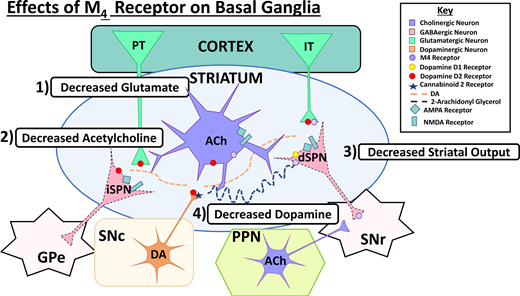
Congratulations to the Moehle lab for their recent publication titled “The muscarinic M4 acetylcholine receptor exacerbates symptoms of movement disorders”
The research found the following perspectives:
- The development of M4 selective compounds is an exciting and important development for the investigation and treatment of movement disorders.
- M4 both directly and indirectly counters DA transmission in the basal ganglia, and are present at multiple loci that have potential disease-modifying effects.
- Potentiation of M4 reduces symptoms hyper-dopaminergic diseases such as HD and LID, and M4 antagonism reduces symptoms of hypo-dopaminergic diseases such as dystonia and PD.
- Future investigations into M4 plasticity in movement disorders are necessary. The disease-modifying effects of M4 need to be further investigated, and specific symptoms and aberrant neuroplasticity that are improved by M4 modulation should be defined.

